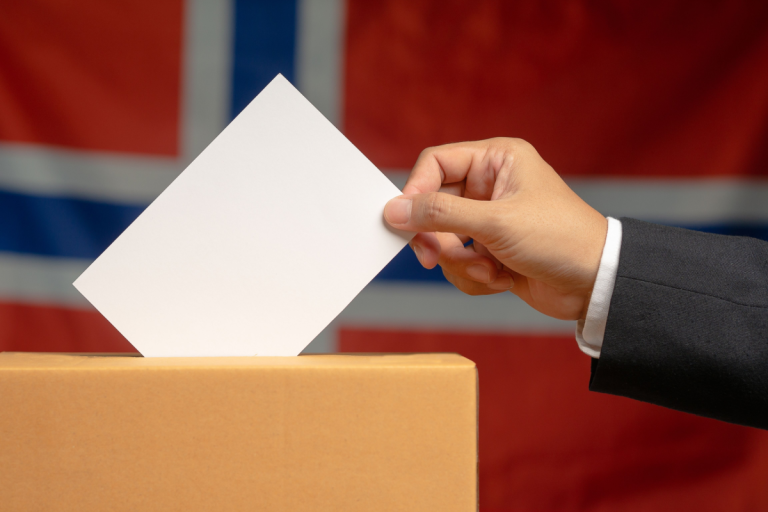Labour Secures Narrow Path to Majority
Norway’s Labour Party, led by Prime Minister Jonas Gahr Støre, has won a second term in office after securing 28.2% of the vote in the general election. The result gives Labour 53 seats in the 169-seat Storting, an improvement from 2021. With the backing of four smaller centre-left parties, Labour could form a slim two-seat majority, a rarity in a country long accustomed to minority governments. Voter turnout reached 78.9%, the highest in years, reflecting strong public engagement in an election shaped by both domestic and global issues.
Progress Party Gains Ground
The anti-immigration Progress Party, led by Sylvi Listhaug, emerged as the biggest gainer, nearly doubling its support to 24% and winning 48 seats. Listhaug congratulated Støre on Labour’s victory but warned that the country faced “four tough years ahead” under left-wing leadership. Despite its surge, the Progress Party and other right-wing groups fell three seats short of the 85 needed to command a parliamentary majority, leaving them out of coalition prospects. The Conservative Party, led by former prime minister Erna Solberg, lost ground with just 14.6% of the vote, and Solberg indicated she may step aside from leadership.
Key Issues in the Campaign
Foreign policy initially dominated the campaign, with debates centering on the wars in Gaza and Ukraine. However, in the final stretch, voters focused on domestic concerns such as inflation, the oil sector, and reforms to the wealth tax, which has prompted wealthy Norwegians to relocate to Switzerland. Norway’s status as a NATO founding member with an Arctic border with Russia, alongside its role in Europe’s single market despite not being an EU member, further highlighted the stakes of the election. Support for Labour was boosted earlier this year when former NATO chief Jens Stoltenberg joined the government as finance minister, reinforcing confidence in the party’s global standing.
Challenges Ahead for Labour
Although Labour’s victory secures continuity in leadership, coalition negotiations are expected to take weeks. Policy disagreements loom, particularly regarding the future of Norway’s vital oil industry and the investment strategies of its sovereign wealth fund, the world’s largest. Støre emphasized in his victory speech that despite a continental rise in right-wing movements, social democracy remains resilient. However, managing the competing priorities of coalition partners while addressing economic pressures will test his government’s ability to maintain stability during its second term.
Norway’s election result underscores both continuity and change: Labour retains power with the potential for a rare majority, while the Progress Party’s gains highlight the growing influence of populist politics. With coalition talks ahead and pressing debates over energy, taxation, and foreign policy, the country faces a complex path forward as it seeks to balance domestic demands with its international role.


